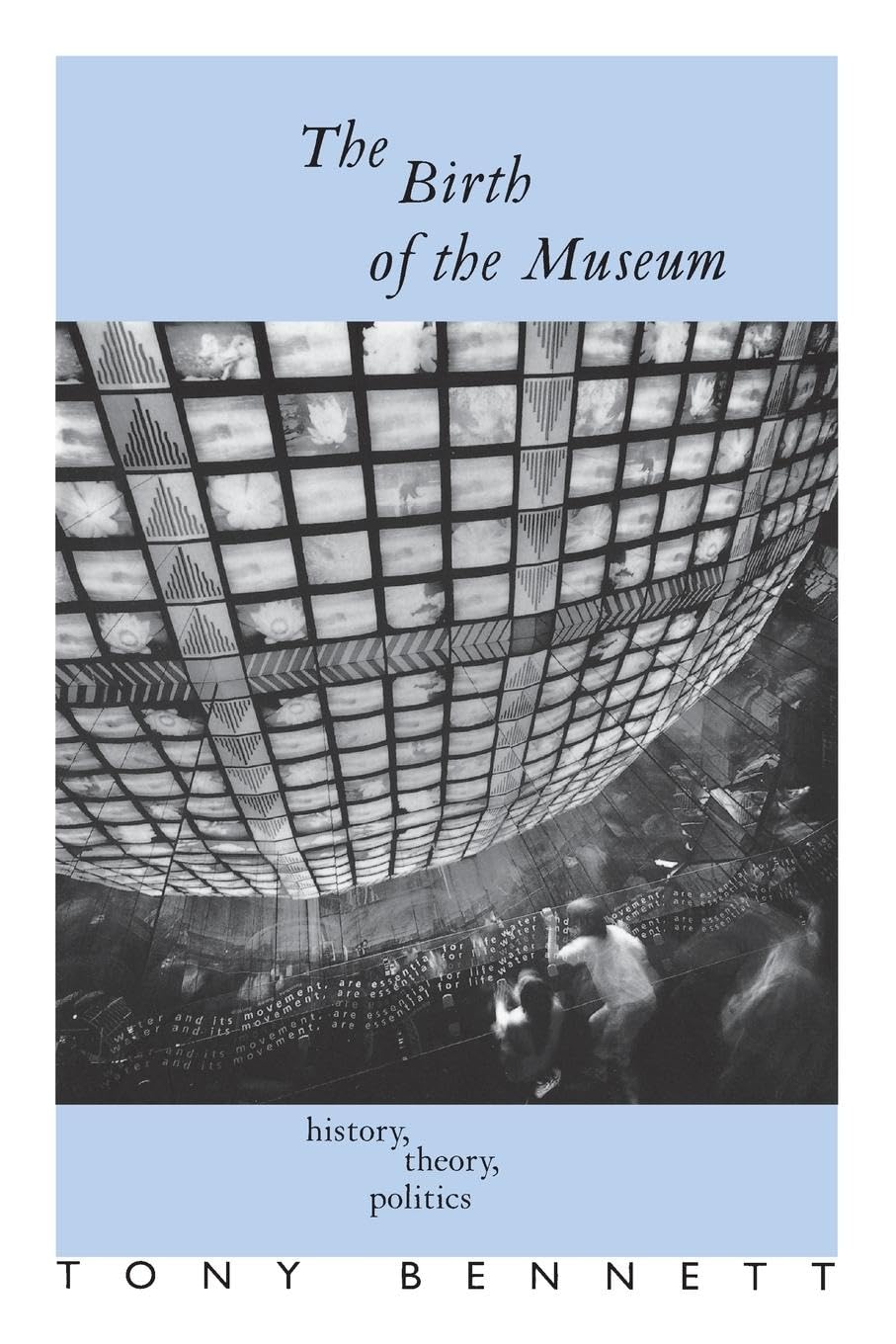Customer Services


Full description not available
B**Y
Dense but satisfying
Bennett's language may be theory dense, but it is rarely unclear while outlining the social and cultural trends which gave "birth" to the museum in its many formats, historical, anthropological, art, etc. This book is really a collection of essays previously written by Bennett on the museum and combined here; I would recommend not reading it all at once as it can be a bit much. However, it clearly looks at the historical and social reasons for how the museum came to be, particularly in its nineteenth century origins. It also relates museums to other social institutions: fairs and cabinets of curiosities as precursors, the 19th c. developments in prisons and the advent of expositions as contemporaneous to the birth of the museum, and amusement parks as a mix of the fair and the museum. Definitely located in the field of cultural studies.
S**Y
This book is NOT by Tony Bennet the Singer
Get a grip folks
I**T
Printed in poorest quality after a digital scan of the original book - not worth the money
This is not a printed book, but just a cheap reprint, apparently made after a digital scan of the original book. Almost all images are heavily pixelated, with incredibly strong "moirée"-effects; sometimes you can hardly recognize what is depicted. Any average photocopy would provide a better quality of the print. The edition looks like - and likely is - a print-on-demand book - but costs twice as much.
X**O
If you are looking for the history of museums...
If one is looking for a easy to read, clearly written explanation of the history of museums I would not recommend this book on its own. It should be read additional to other literature, as Bennett does just rarely gives his best to elaborate his thoughts in a structured way but often elaborates more through examples and Foucault's theory than his own thoughts. However, some passages as well as subchapters are worth reading IF they are read after beeing familiar with the establishment of museums. Alone one might just get caught in a mix of Bennett's obsessiv use of Foucault quote. If you know which parts to skip, dont try to understand every single line of thought, I find this book can be useful to read. If you are really looking for a basic outline of the history of museums I would recommend other literature (such as specific chapters of Sharon MacDonalds 'Companion to Museum Studies).Language-wise I have had problems with Bennett's style of writing at times. Even though many might be used to this from social theory, I personally find his choice of words very complicated. I would therefore not recommend this book to non-native speakers (and I am not even sure if native English speakers would get along with his style) as a simple reading but more as a book one really has to commit to...
S**F
More to it than theory-speak
It's true (as other reviewers have complained) that Bennett's analysis can be a little too slick at times. But even if the Foucault-inspired arguments are overstated, this book still offers interesting discussion of specific historical examples. If you take a "social control" theory too literally, this sort of analysis will become wrongheaded. But Bennett and other researchers in this vein are asking serious questions: how do the ways we order and represent knowledge (as museums are designed to do) shape what we can know?
A**I
Rediculously complex
As a museum professional with over twelve years experience designing and producing exhibitions for a wide variety of subject matter i was immediately interested in Tony Bennet's book. The summary on the back mapped out, in plain english, a book that detailed the social and political forces that resulted in and shaped the modern concept of the museum.However once i had purchase the book and actually tried to read it I found myself drowning in Foucault -ian language that ultimately obscures any observations that Mr Bennet may have had. This book is only for those with a college degree in philosophy,as it seems more focused on showing us all how clever Mr Bennet is than actually dealing with the subject matter. Completely inaccessible to all but the most acedemic minded scholars
Trustpilot
1 day ago
1 month ago